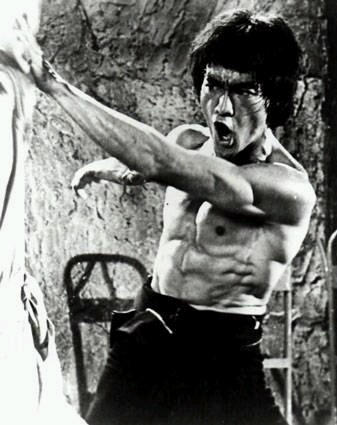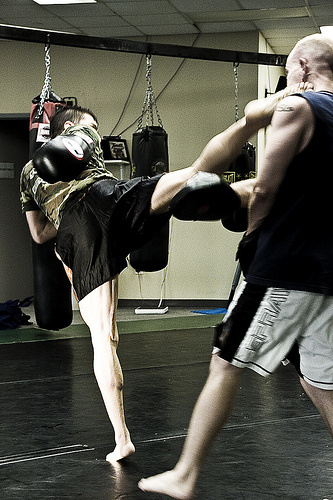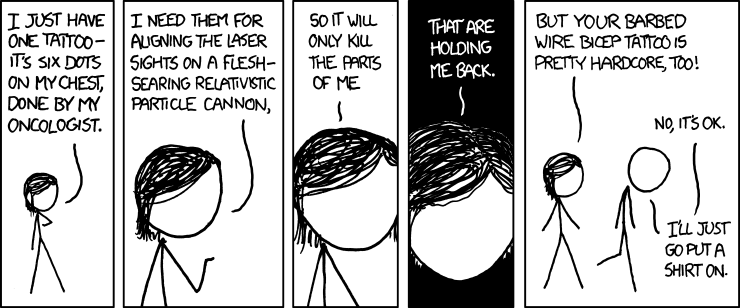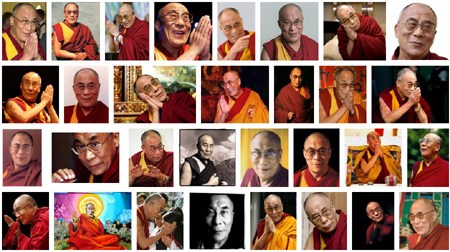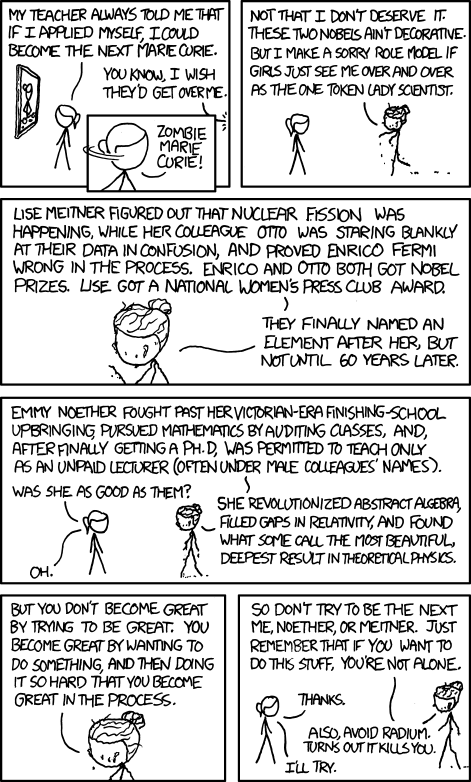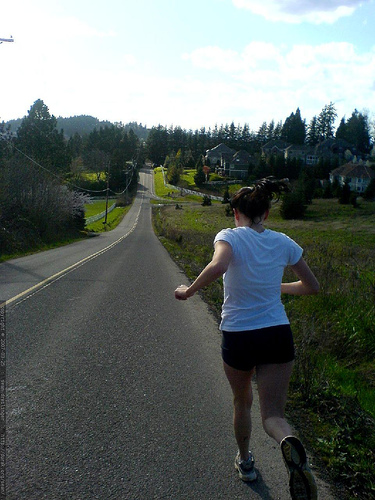 In the first post in this series, I brought up the question of a perfect approach to willpower, some kind of zone we could get into that would make us automatically able to make the good choices we want for ourselves–exercising more, dealing better with people, eating healthier, working harder, stopping dangerous behaviors, or anything else. Lately I’ve gotten a glimpse of a frame of mind that is something like that zone, a frame of mind that has been making willpower much, much easier for me. Unfortunately, it’s not a single, simple change–but the pieces of it are ones we can master. Here are the ones I’ve been able to puzzle them out so far, and though I’m talking mainly about weight loss, the principles are the same for any other willpower challenge.
In the first post in this series, I brought up the question of a perfect approach to willpower, some kind of zone we could get into that would make us automatically able to make the good choices we want for ourselves–exercising more, dealing better with people, eating healthier, working harder, stopping dangerous behaviors, or anything else. Lately I’ve gotten a glimpse of a frame of mind that is something like that zone, a frame of mind that has been making willpower much, much easier for me. Unfortunately, it’s not a single, simple change–but the pieces of it are ones we can master. Here are the ones I’ve been able to puzzle them out so far, and though I’m talking mainly about weight loss, the principles are the same for any other willpower challenge.
1. Resignation
This might seem like an odd thing to emphasize, but it’s become clear to me recently just how essential resignation is. Resignation is saying “OK, so this will be painful or inconvenient or unpleasant sometimes. I can deal with that.” Resignation is saying “I’ll embrace hunger, or loneliness, or whatever the challenge is for me, and find out what there is in it I can enjoy.”
Ineffective fad diets often claim they can help you lose weight without going hungry, or while still eating foods you love. It’s not impossible to lose weight without going hungry very much, or while eating foods you love, but it’s much easier if you’re willing to eat food you find boring, dull, and insufficient. If that sounds joyless, consider: what’s the best source of joy anyway? Yes, it can occasionally be delightful to eat a doughnut, but more often it’s just vaguely pleasant and we don’t pay that much attention anyway. Feeling successful, healthy, strong, and capable, however, pays off in joy consistently.
2. Going toward, not running away from
To eat well, it’s much easier to focus on getting healthy food than on avoiding unhealthy food. To quit smoking, it’s much more motivating to focus on how many non-smoking days one has had so far than on missing smoke breaks. The more we think about things, the more our brains automatically configure themselves to be ready to do those things. If we spend a lot of time thinking about activities we’re trying to stop or do less of, it will make it harder to avoid them. Instead, we can focus on things that carry us forward.
3. Consistency and commitment
I don’t know how much this is my particular personality and how much this is true for most people, but it’s far easier for me to stop doing something I’m used to than to do just a little of it. For example, in 1985, concerned about environmental impact and mistreatment of livestock, I stopped eating meat, seafood, and poultry. I continued as an ovo-lacto vegetarian for more than 20 years, at which point I found that there were health issues for with my diet as it was (notably, it turns out that I’m allergic to soy and needed to reduce cholesterol consumption), and I added seafood and poultry back in. Vegetarianism was sometimes inconvenient, but it was never difficult. Similarly, I go years at a time without having any caffeine–coffee, chocolate, most sodas, etc.–because my body doesn’t handle caffeine well. That hasn’t been hard either.
By contrast, it can be very hard for us when we try to ration unhealthy foods or TV watching or Internet usage. Rationing seems to encourage us to think more about the things we’re trying to minimize, which as I’ve mentioned causes trouble. So the most successful attitude toward healthy eating for me has turned out to be “I’ll try to make healthy food choices every time.” Yes, there will be situations where I don’t have many good choices, and there may even be situations where I choose something less healthy because that’s the choice that makes sense to me at the time, but my practice now is to stop myself before any “recreational” eating choice and see if I can’t find a perspective that makes me happy to skip it. Not that this is always easy: more on that below.
4. Awareness
In order for me to make good choices, I have to realize it when one of those choices is in front of me. If I have four pieces of pizza in my belly before I remember to think about what I’m eating, then it’s already too late. Accordingly, the first thing I practice is being aware of making a choice. The second thing I practice is being willing to think about my motivations for making good choices. It shocks me how often I’ll realize I’m in a situation where I need to make a good choice and my first inclination is to not think about it. When I get past that and focus my attention on what I’m trying to achieve in my life, it becomes much easier to make the good choices. It’s when I don’t notice the opportunity or do notice but don’t allow myself to think about it that I run into problems.
5. Knowledge
I should say that any positive change needs to be founded on real knowledge. Meaningful facts–whether it’s calorie counts for eating well, knowing that people who have tried to quit smoking before are more likely to succeed when they try again, knowing what markets are available for the novel you’re working on, or really understanding the question of cardio versus strength training–facilitate reaching our goals, while lack of information gets in our way. For instance, if I try to lose weight but don’t realize that some of my “diet foods” are high in calories, I’m very likely to give up, because I’ll see I’m not making any progress.
So those are the pieces–at least, the ones I recognize so far. In the third post in this series, I’ll talk about how these pieces fit together and what it feels like to be fully engaged in changing a habit for the better.
Photo by sean dreilinger




